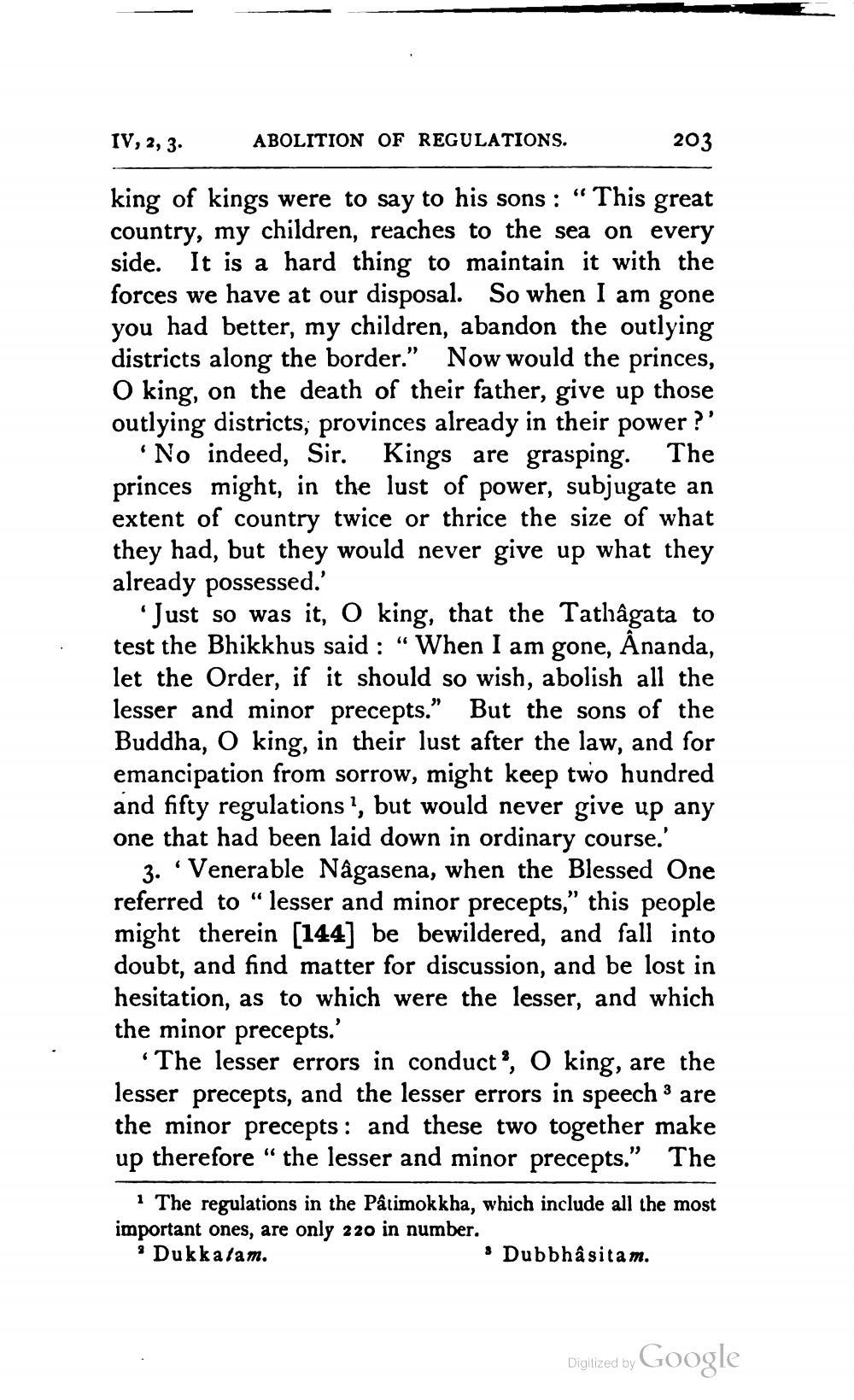________________
IV, 2, 3.
ABOLITION OF REGULATIONS.
203
king of kings were to say to his sons : “This great country, my children, reaches to the sea on every side. It is a hard thing to maintain it with the forces we have at our disposal. So when I am gone you had better, my children, abandon the outlying districts along the border.” Now would the princes, O king, on the death of their father, give up those outlying districts, provinces already in their power?'
'No indeed, Sir. Kings are grasping. The princes might, in the lust of power, subjugate an extent of country twice or thrice the size of what they had, but they would never give up what they already possessed.'
Just so was it, o king, that the Tathagata to test the Bhikkhus said: “When I am gone, Ananda, let the Order, if it should so wish, abolish all the lesser and minor precepts." But the sons of the Buddha, O king, in their lust after the law, and for emancipation from sorrow, might keep two hundred and fifty regulations ?, but would never give up any one that had been laid down in ordinary course.'
3. Venerable Nâgasena, when the Blessed One referred to "lesser and minor precepts,” this people might therein [144] be bewildered, and fall into doubt, and find matter for discussion, and be lost in hesitation, as to which were the lesser, and which the minor precepts.
• The lesser errors in conduct?, O king, are the lesser precepts, and the lesser errors in speech : are the minor precepts: and these two together make up therefore " the lesser and minor precepts." The
1 The regulations in the Pârimokkha, which include all the most important ones, are only 220 in number. : Dukkalam.
Dubbhâsitam.
Dialized by Google




